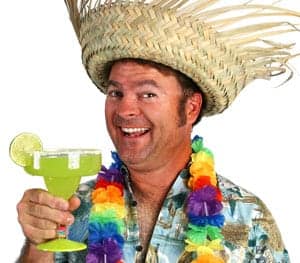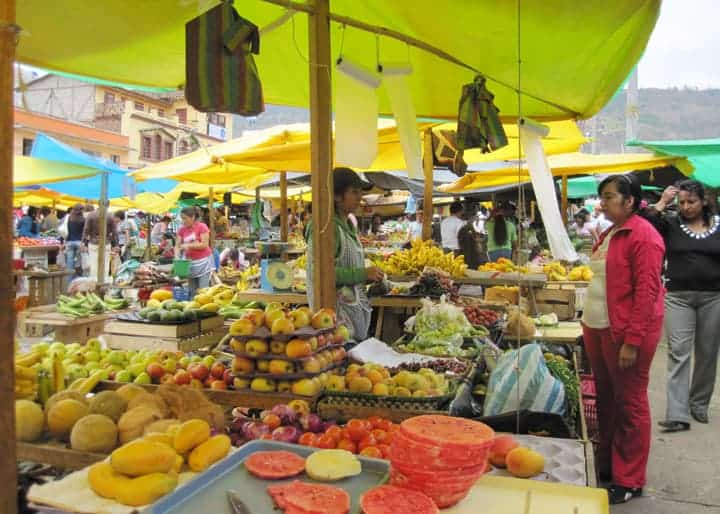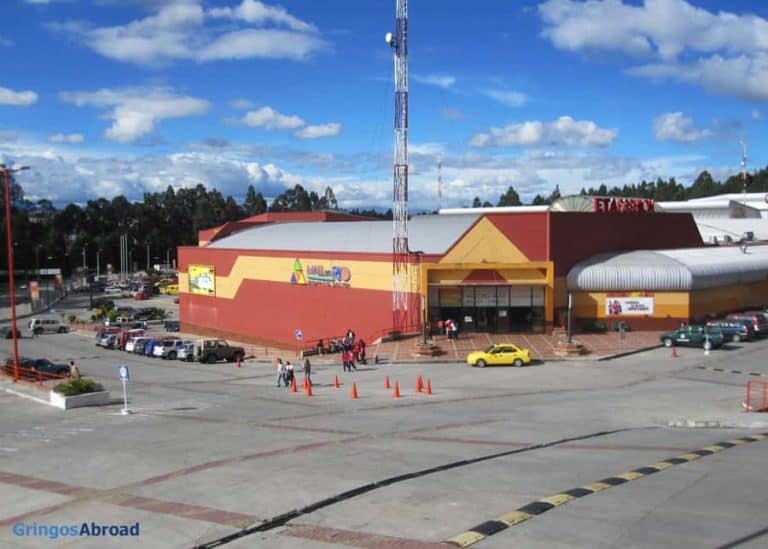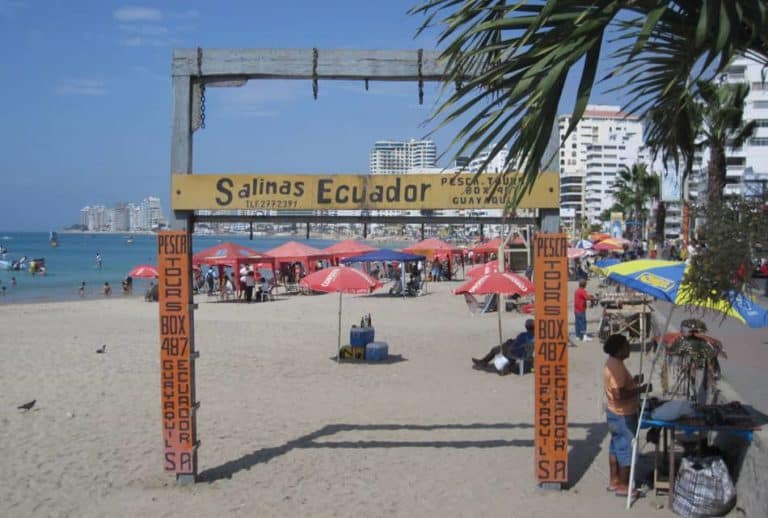Is "Gringo" Offensive? Meanings, 4 Origins, (Travelers Guide)
We knew before we moved to Ecuador that we were gringos. And we have been called gringos frequently – by store clerks, friends, and even strangers on the street. I’ve gotten so used to it that I describe myself on the phone as “el Gringo” because it’s the easiest way to describe who I am. In a community of Ecuadorians, the term gringo identifies me as the 6ft-tall pale-faced guy.
Let me preface this post: While I don’t pretend to understand the implications or etymologies of racial/cultural slang, I am familiar with this one from my perspective, from the six years we lived in Ecuador. When we first arrived in Ecuador, we were referred to as Gringos and subsequently began referring to ourselves as such.
Just What is a Gringo? 4 Possible Origins

There are many different ideas. The most popular idea online is that it originated during the Mexican-American War (1846 – 1848).
Here are the three most commonly stated origins:
- Green-Grow: This story states that the Mexicans misheard U.S. troops singing “Green Grow the Lilacs” an Irish folk song during the Mexican – American War.
- Green Go Home: During the Mexican-American War, this angle states that Americans wearing green uniforms were shouted at with the chant: “Green Go Home”.
- Green Go: From Brazil comes the following etymology: the English words “green” and “go”, are reportedly linked to foreigners exploiting the Amazon rainforest. Locals watched foreigners take the green (nature) away for profit.
Actual Gringo Meaning
As with many other popular beliefs, these are also all incorrect. These all date from the 19th century. Below is a citation from the late 18th century.
Citation from Wikipedia’s Gringo entry:
The word gringo was first recorded in the Castilian Dictionary (1786) by Terreros y Pando, and was defined as:
- Gringos llaman en Málaga a los extranjeros que tienen cierta especie de acento, que los priva de una locución fácil y natural Castellana; y en Madrid dan el mismo nombre con particularidad a los irlandeses.
- Gringos is what, in Malaga, they call foreigners who have a certain type of accent that prevents them from speaking Castilian easily and naturally; and in Madrid they give the same name, in particular, to the Irish.
Also, a Spanish-French Dictionary (1817) by Antonio de Capmany states:
- . . . hablar en griego, en guirigay, en gringo.
- . . . to speak in Greek, in gibberish, in gringo.
Isn’t this a great entry? “To speak gringo” – means to be almost indecipherable in your Spanish because of your English accent.
5 Gringo Variations

- Gringo – for the man
- Gringa – for the woman
- Gringita / Gringito – for the child or the “dear little gringo”. This is a term of endearment. Also spelled: gringuita and gringuito.
- los Gringos – the group of gringos
Online forums, Facebook, and blog comments are full of Americans and Canadians who are insulted at the thought of being marginalized by being reduced to a single word.
In Ecuador, a Gringo is anyone foreign – from any country. However, the taller and blonder you are increases the odds of being called a gringo. But the telltale giveaway is when you open your mouth. Once you speak, either exclusively in English or with a distinctive English accent, you become a “Gringo”.
Something to remember: in Latin American culture, it is common, accepted, and even a kindness to give people nicknames based on their physical appearance.
For example:
- Flaco (skinny)
- Gordo (fatty)
- Gordito (little fatty)
- Suco (fair-skinned)
- Negrita (little black)
A few years ago, while visiting Margarita Island, I drove with a Venezuelan friend. He referred to his friend as “negrita” – I was surprised. I thought that it was out of bounds – that it was an international insult.
But no . . . in Spanish, its a common term of endearment. A professional friend, a Cuencano, calls his wife “flaca.”
When translated, it means “skinny woman.” In English, it doesn’t sound so nice, but in Spanish, it is a sweet expression from a husband.
In Ecuador, people are often identified by where there are from:
- Cuencano (a person from Cuenca)
- Guayaquileño (a person from Guayaquil)
- Quiteño (a person from Quito)
Is Gringo Offensive?
No, the term gringos isn’t offensive to us.
It wasn’t uncommon to be walking downtown and hear two older Cuencanas say: “Mira – la gringita”, referring to our daughter. They say it with all the love and interest that her grandmother would. To us, it is very kind.
For us, being called Gringos is equivalent to being called Canadian. It simply identifies our origins.
More than a few expats in Latin America are offended by this expression. I hope to shed some light on the word’s origins and what it really means. (And I hope not to offend my fellow Gringos.) 🙂
What Does “Gringo” Mean in Ecuador?
From our experience, a person is a gringo if they are a light-skinned foreigner. Not just people from the United States, but all foreigners.
It seems that in some Latin American countries gringo applies primarily to inhabitants of the United States. But it has a wider meaning here in Ecuador.
Being a Gringo seems to also be related to the ability to speak Spanish properly. There are some Ecuadorians that are tall and light-skinned.
They look at first glance like someone I would describe as a gringo. But when I speak with them, they clearly aren’t.
So it seems that both your appearance and what comes out of your mouth identify you as a foreigner, er… gringo.
A number of our Ecuadorian friends are light-skinned (with either brown or dark blond hair) and are known among their family as suco or suca (meaning blond or fair-skinned). Parents will sometimes call their fair-skinned child suco (or suca for a girl).
From our experience, the term “Gringo” is not derogatory in Ecuador. But it is a common and descriptive term.
Am I a Gringo?
Of course. We call ourselves gringos – because that’s what we are. We are funny-speaking light-skinned foreigners. I don’t think I’ve ever heard it used in a derogatory way toward us or other expats.
We refer to all foreigners as gringos. Especially those that stand out as stereotypical tourists. You know, a guidebook in one hand and souvenirs in the other and a cheap Panama hat on their head. Nothing wrong with that.
You Might Be a Gringo If…
- you are from an English-speaking country
- you are light-skinned
- you don’t speak Spanish (or speak with an English accent)
Post References: Wikipedia: Gringo, Spanish on About.com: Gringo, Latinaish: Is Gringo Offensive?, Spanishdict: What is a Gringo?
What Are the Alternatives to “Gringo”?
While most people from the United States consider themselves “Americans”, this doesn’t have the same meaning here.
America isn’t a country: it includes everything from Alaska to Argentina.
After all, Ecuador is part of Latin America, located in South America. Technically speaking, everyone from Canada south to Patagonia is an “American.”
If you are from Canada or the United States, you may be called norteamericano (North American).
At a glance, it is impossible to tell Canadians, British, Australians, and New Zealanders apart. So just as the diverse nationalities of Latin America have been grouped (right or wrong) under the term “Latino,” it seems that “Gringo” have come to define foreigners as a group in Latin America.
Have you noticed a Gringo superiority complex?
Gringo Superiority Complex: Are You Guilty?

We’ve realized that as foreigners, we need to be careful not to come across as having an attitude of superiority.
The idea seems to exist among some that North Americans feel that they are better and their ways and customs are better than the ways and customs of others.
Granted, there are a few from North America that probably do feel that way, but our family and the majority of other gringo families and friends that we know here do not share this attitude.
What is Gringo Superiority Complex?
That being said, there is still the need to be careful of how we act and what we say/write. Schooling is mandatory here, and English is part of the curriculum, so we can be certain that when we are overheard, some or most of what we say is understood.
Because of this, an innocent conversation comparing differences in habits or culture could be easily misunderstood.
For example, there is a custom here of taking time in the middle of the day to eat and spend time with family; during this time businesses close.
This is very different than what we are used to in North America, so we may be surprised when we arrive at a place of business expecting to be able to do what we intended, but we are unable. This may lead to a conversation something like this:
Wow, they are closed, what are we going to do now? We can’t come back later today, we don’t have time! This never would have happened back home! This is going to take some getting used to!
To someone overhearing that conversation, especially if they are already inclined to think North Americans feel superior because of past experience, they may think that we don’t like this custom.
But the reality is that we do like it, and we actually think North Americans could learn a thing or two from the importance placed on family. The overheard conversation was merely stating the difference, but again, it may be misunderstood.
I recently wrote an article listing some of the differences we notice here as compared to back in Canada. I received a negative comment about the information telling me to return to my perfect world because I was not needed here. It was not my intention to come across as feeling that the ways back in Canada are better, and we didn’t move here because I felt people here would be better off because of my presence.
We moved here because we thought it would be better for our family, we are staying because it is. And although I understand that I can’t please everyone all the time, this comment made me realize the need to be extra careful about the things I say. I reviewed the article and removed the aspects that I felt could have been misunderstood.
We love it here in Ecuador; that’s the reason this website exists. As foreigners, we are thankful that most Ecuadorians welcome us with open arms; the people here are very warm and friendly. I’m sure that other foreigners feel the same way, that’s why they choose to live here.
We don’t want to go home – we realize North America is far from perfect. I too have overheard foreigners talking and thought they sounded like they had a superiority complex. This was embarrassing and slightly upsetting of, but it made me realize the need to keep our sense of humor tuned up.
It’s funny when you really think about it. . .
We are all humans; none of us are better, just different.
The idea that a person could think that they are fundamentally better because of a difference in the number of hours business are open in the country they were born in, or because of the difference in the way fruit and vegetables are displayed in the country they were born in, is a faulty way of thinking, and kind of comical.
It’s my hope that foreigners will be very careful about what they say, so as not to give the impression of superiority. And it’s also my hope that if local people overhear foreigners sounding superior that they will tap into their sense of humor and just laugh it off. It’s much better to realize that small-minded thinking is something to be pitied, rather than to take offense at a faulty thought process.
It’s also good to realize that living in a foreign country takes some getting used to, so what’s being heard is probably just part of the adjustment period. So please have patience with us gringos and don’t take us too seriously. We, as foreigners choose to live here because we like Ecuador and Ecuadorians.
What do you say? Are you offended by the term? If you are from Latin America, what do you say about it?
So, what about you: Are you a gringo? What is a Gringo to you?







I’m half Mexican, born in the united states. I have been called gringa all my life (We speak Spanish at home) and they even call my dad, my cousin, and los abuelos (who are all Mexican) gringos because they’ve lived in the states so long. I didn’t realize there were people who found it offensive for a really long time.
Thanks for sharing your experience. We’ve never felt it to be offensive, we actually kind of like it. Our first site was called Gringos Abroad – and we just embraced it.
This is incorrect, no one refers to us in North America as norteamericanos. They call us estadosunidencens… and also, if they did call us norteamericanos, it is Americano Del Norte….
Hey William,
I’m not going to debate with you what we heard. And here’s what would be grammatically correct, from a Spanish perspective: norteamericano. I always like to do my homework before correcting someone else. 🙂
@Bryan Haines, @william. You are both right my gringuito friends… I’m from Mexico and we use all these terms, Americano, Noreteramericano, estadounidenecs, griguitos, we love you anways
I dont suppose Ive learn something like this before.
If it could be termed offensive than it shouldn’t be used. Gringo is one of those words. I also get into arguments with my Latino friends about people from the United States calling themselves American. Their argument is we are all from America so people from the U.S.A. shouldn’t refer to themselves in this way but I disagree. I’ve never in my 40+ years traveling to South America or when speaking to my Latin friends heard them refer to themselves as American. The only time it happens is during our argument. I explain that it is in the name of our country, hence being easier to describe where we come from. Mexico also uses United States of Mexico thus eliminating using United States. In my honest opinion this goes deeper than Latinos claiming they are American and not just people from the U.S.A.. Possibly it comes from the United States rocky foreign relations with Latin America and our somewhat smug attitude, thinking the world revolves around us. In the hyper-sensitive world we currently live in we should take everyone’s sensibilities into account not just the downtrodden or minority. The problem we have currently in this world is we are so concerned about our issues and what we care about and don’t take the time to fight for others when it doesnt benefits us.
Jose Allevato, I totally agree with your comment regarding the world we live in, where we are mostly concerned with our own issues ONLY, and generally don’t pay much attention to the sensibilities of others. Also, I would like to provide a bit of clarification where you disagree with the author’s comment. You are right when you say that normally Latin Americans don’t refer to themselves as Americans. The issue here is not if people from Latin America want to call themselves American or not. The issue that makes Latin American people uncomfortable is when people from the U.S. “take” the term American to refer to themselves. When they do that, to many Latin Americans they are sort of claiming that the U.S. “owns” the entire American continent and therefore they have the “right” to take the term American for themselves. It is like asking a German “where are you from?” and him responding “I’m European”. Would he be wrong? no…. he is European, but how would that be seen by other Europeans if all the Germans (and ONLY the Germans) would always respond that way to that question? To me personally that would be like trying to hide your true origin, and try to hide your actual nationality behind the entire continent (but that’s just me :=)
I agree with you up to the point of you referring to a German calling themselves European. Germans do not have the word European in their nations title but U.S. Citizens do, the United States of America. Unfortunately when the country was named it wasnt very creative but it’s all that we have going for us. I also understand what your saying when you make the comment of Latinos from other areas of the continent or continents ( another separate argument) feeling U.S. Citizens say American as if they own the entire continent when the don’t. I honestly dont feel that’s the case when people say it, I just think most are ignorant to colonialism and the U.S. Governments abuse of other people from those countries. I think they just say it because that’s what they know and every other version is clumsy. I personally refrain from using it because I know others take offense to it, unfortunately others dont return the favor.
Calling AMERICANO to a estadounidense is like calling a french EUROPEAN, of course he is European, but first of all he is french. I think than we Latin American (or Canadian) get mad at the term AMERICAN because you are using the name of the whole continent as your home land, which of course has many political implications . On the other hand, accepting that you are “American”, but I am an Argenino, Colombiano, Ecuatoriano, Peruano….etc. Is accepting that we are in an inferior position than you in geopolitical terms. We all (guess/know) that this is kind of the point behind that….
Scenario: Team of Guatemalan guys working in US, you are the only non-Guatemalan working with them. You were introduced by your boss, and took the time to individually identify with each co-worker and learn their names, a bit of their ‘story’, establish good work conditions….yet for TWO LONG MONTHS you have been called Gringo by all seven, never your given name (which is quite basic like Joe, John, Dave, Stephen). You have even addressed them as a group telling them you will no longer respond unless your given name is used. And they call other American co-workers by the proper name. At what point is it disrespectful? In my opinion Gringo can definitely be used in a derogatory/disrespectful meaning.
Absolutely agree. Just like any nickname, the term gringo can also be used disrespectfully.
In Ecuador, the Spanish word “jefe” (boss or leader) is commonly used when dealing with someone who knows more than you do about a certain topic. Like a mechanic or carpenter. It is also used as an informal show of respect. But it can also be used sarcastically with disrespect. The word isn’t as much the problem as how it’s used.
why is it a disrespectful word and a nice word
I am a soon-to-be legal adult, and think I have a word on the topic.
First off, for me, it’s no question that one can accept dual nationality should one have the desire, merely on the assumption of the virtue in that. Such is my case: I say I’m Puerto-Rican American–and it’s no book or vague definition that tells me, because I’ve proved it for myself.
I remember an adult family friend asked me casually at around the age of 8, if I was Latino, and confusion ensued within me. How could I be both Puerto Rican and American?
What I didn’t know, and what the social environment didn’t want me to know, was this: American is first born as a nomenclature to describe nationality (it’s anyone “from” the United States, whether originally (by birth) or, as it’s used informally, culturally). Where was I from? And what made me who I was?
Well, to answer the question, the aforementioned. But then another question is the one I had to learn to deal with, the ethnicity the way it is defined for you is clear, and so is the race. But then, why am I still being called “gringo” as a supposed term of endearment when it is exclusive of one thing and inclusive of the other; when it is based on how good some slight years of a difference have on my ability to pronounciate a set of compounded, abstract signs that is language, which is peculiar in speech to every individual as well as to every nation; when being Spanish can mean being English too and so much more?
That is the question people define for themselves, and as long as there are differences in our opinion, our ability to not be in favor of one or the other is hampered, our language is hampered, our communication…the rest is history. That is the naked truth.
Ah, another fellow human with split personality. My daughter has 4 (four) different nationalities by birth (Ecuadorian being one of them), so I understand where you are coming from. I have worked with a lot of people in the United States and I have met children of Ecuadorian immigrants on the east coast and the west coast. My first thought often was that if I they were Latino I should be Super Cholo, because they acted very, very American and knew less about their parents’ cultural roots than I did. However, they looked the part while I look like Ragnar the Viking. When those people who were born and raised in the USA come to Ecuador people will call them gringo because of how they behave, or you might hear something like “Se cree gringo”. In my case, it’s the other way around. People call me gringo based on my looks and later I might hear something like “Este no parece gringo”. It’s always looks and behaviour.
Gringo, origin: GREEN GO
haha
That’s a popular myth, but not true. It actually comes from “Griego” (Greek). As in ‘look at those foreigners speaking Greek (strangely)’.
I think we Norte Americanos can be a bit too sensitive. I have been in Costa Rica for a year and a half and have never taken offense at the term… anymore than the Costa Rican takes offense at the term Tico.
Standing at 6’3 and being very much caucasian means I don’t blend in too well.
Great, still relevant, post.
Agreed!
Many North Americans recoil at the though of being pigeon-holed – but don’t have any qualms about doing the same to many other groups.
I found, however, that in Central America the word was used exclusively to describe Americans from the US. The term was not applied to Europeans. That was my experience in Mexico and Panama. In Mexico it definitely wasn’t a friendly term. This is why I initially didn’t like it. I thought they were calling me American. In Ecuador the term is used very broadly, mostly applied to foreigners, but I have heard it applied as an adjective to generally fair skinned or blonde people as in “Esa senora es bastante gringa”. If I heard it in Mexico, I would take offence.
I don’t see “Gringo” as offensive. To paraphrase my Commander in the Army; “People are offended by things because they ***choose*** to be offended by them.”
Very true!
You could also say people ***choose*** to offend you. In fact, in active voice, that’s exactly what the phrase becomes. Whether you ***choose*** to be offended is separate from whether something is in fact considered, by some reasonable criteria, offensive. No offense (see what I mean?).
I think to take offense is good when it is dealt with respect, with prudence, and with wisdom from the the one offended. Sometimes, the best thing like you imply, is to say nothing at all . But the problem, like a hairy spider, can crawl from its cave at any moment and attack. Something to think about.
That’s true. Offense can be intended – but it’s nothing if you don’t “take offense”.
The shortest way to clarify this “If a Latino really wanted to insult you they would call you a ‘Yanqui’ [Yankee] not a Gringo. ‘Yanqui’ is the name that is used in pejorative manner in teaching in many university settings throughout Latin America. Not all I am sure but you can easily find anti-Yanqui statements throughout Latin America. The meme often is ‘how those racist Yanquis got rich by stealing everything from the poor, pure Latinos.’ It’s also taught in Spain, I know because my college educated lawyer girlfriend from Madrid told me about all the stuff they were taught about Gringos while in her days in the University system in Spain. jajaja. Right or wrong, it’s just part of the territory…. it’s their country, their culture so I suggest you just learn to live with it and not get your dander up.
So, based on what your saying everyone who comes to another’s country need to just accept insults and ignorance because it’s not their country. Copy that.
“Gringo” is not an insult, nor is it originally Ecuadoran. It is among those words that grew out of the meeting of two cultures; Mexican and Anglo-Saxon. The most credible story is that the earliest Texas immigrants from Tennessee (generally the Scots-Irish), permitted by the Mexican government to settle in their state of Texas, arrived by ox-drawn wagons in the 1820s while singing a newer version of an old Irish folk song,”Green Grow The Lilacs” (which itself apparently drew on an earlier song from the 17th century, “Green Grow The Laurels”). ‘Green grow’ became “Gringo”, and the rest is history.
Another version, though less likely, says the term arose twenty-five years later during the 1846-1848 Mexican-American War. In both stories, the song gives rise to the term. Today, like then, gringo is benign and is just short-hand for “white”.
Since it is from the 1800s, most Mexicans don’t know where it came from either. Other common Latino terms are “anglo” (also benign), and “yanqui” (slightly pejorative). Similarly, “negro” or “negra” just means a black male or female and connotes no other meaning. …friendly reply from a Texan
Hi. Not every foreign person in Ecuador is called “gringo”, this is a term for the Caucasian, blue-eyed, white ones. We don’t say the Colombian living in Ecuador are “gringos”, for example.
Here in Ecuador, most people use GRINGO with no negative bias at all. It depends on the tone. Commonly, we use CHINO for all asians, even if they’re not chinese. And this is not only for foreigners: asian ecuadorians are also called like that. Even Guayaquil mayor (Jaime Nebot, who has arab roots) is called CHINO.
You guys should embrace the term GRINGO and turn it positive. That’s what ecuadorians living in Spain do with the SUDACA term they use to call a latin america in Europe.
Just people who poorly speak spanish would say gringo. There are well educated Ecuadorians, probably not friends with the foreign community, who will certainly not address a foreigner as “gringo”.
I have to disagree – at least with what I’ve seen in Cuenca and surrounding areas. While well educated Ecuadorians don’t just randomly walk up to me and call me “gringo” – they do refer to us as gringos, especially our friends and clients do. As with anything, it depends on how it is said. While we use the term “expat” to describe ourselves in English, I haven’t heard an equivalent term in Spanish. In Spanish we are either extranjeros (foreigners) or gringos – with the term gringo being more specific because not all extranjeros are gringos.
Older, sophisticated Cuencana women frequently refer to us, and especially our young daughter, as gringos – but with kindness. My daughter is the “gringita” and always said with much love, even from complete strangers. Sometimes as we walk by strangers on the street, they will comment about us (probably not knowing that we understand Spanish) and refer to us as “gringitos”. Sometimes they will even stop us on the street to speak to us to find out where we are from and if we like their city.
Thanks for commenting!
That’s nice! I have the idea that cuencanos are kind.
Very true – Cuencanos are kind and very accepting of foreigners.
Many years ago when my Mexican experience was still very fresh I hired a photographer in Ecuador to take pictures and a video of my wedding. He filed my material under the work “Gringo” (I guess I was the only one among his clients back then) and it was also written across the DVD with my wedding movie inside. I almost asked my money back and my in laws had to calm me down. That’s how I quickly learned that the word really is an everyday word in Ecuador unlike in some other countries of the Spanish speaking world. My family had to explain it to me over and over again for an entire day.
Beg to differ. President Correa uses the word -Not in a candid way, though.
Heard a story that the word Gringo has its origin in the mexican – american war in the XIX century. The mexican told the uniformed soldiers; green – go!
Here in Ecuador, everyone calls me ‘Suca’ which means Blondie. I used to find it very offensive, but now I think of it as normal and I don’t mind it. Another great post!
I lived in Argentina for 6 years as a kid and I was the ‘gringa’. At first it did make me feel like I didn’t belong but it eventually grew on me.
This is definitely an interesting question to ponder. As a foreigner in Korea, I’m referred to constantly as a ‘waegook’ which is the equivalent of gringo and in Thailand I’m called a ‘farang.’ I think in certain cases they may be used in derogatory manners, but to be honest, most of the time it isn’t.
If you are really good friends among guys in Ecuador calling your buddy “negro feo” (ugly black) will probably earn you a big laugh and a pad on the back, regardless of their actual skin tone. Forget what your culture taught you about political correctness and loosen up to the fact that being able to call someone certain things is an expression of trust and bonding.
I loved your description of the word. Having travelled many times to Central and South America during my career I have never taken offence to being called a gringa. I think of it as a term of kindness as I have found all the locals very congenial.
Here on the coast in San Clemente it’s a term used to describe all those who are not Ecuadorian. As others have stated it can be used as a derogatory term by the tone of voice and the way it’s said. As a expat, your actions and words will determine whether gringo is describing your origin or some character flaw. After living here for 10 months we are still the gringos though most call us by name Jon y Maria.
A tidbit of info, there is a fish that the pescadores call gringo and another called gringoito, both excellent eating fish.
Gringo…
You may be wondering why I didn’t simply look “gringo” up in a Spanish-English dictionary, since I was so determined to find its definition. Well, I did, and the word was defined as “one who speaks gibberish”.
The word “gringo” was mentioned in Spanish literature as early as the eighteenth century. In his famous Diccionario, compiled prior to 1750, Terreros y Pando, a Spanish historian notes that “gringo” was a nickname given to foreigners in Malaga and Madrid who spoke Spanish with an accent. Maybe it sounded like gibberish.
According to one opinion, “gringo” is a corrected form of griego as used in the ancient Spanish expression hablar en griego, that is, to speak an unintelligible language or “to speak Greek.” There’s that gibberish thing again.
Where did “gringo” come from? If any of you readers are familiar with the paintings of scowling foreigners who hung out in Mexico a couple of hundred years ago, the gentle Mexican people probably took one look, decided the strangers should smile and depart, and cautioned them to “Grin. Go.”
As far as I am concerned, I like the expression “Gringo” and I do not find it offensive if someone calls me that way.
My husband is from Argentina and has always called me Gringa. It may be a bit offensive, but I’ve always embraced it even putting it on my luggage in embrodery! Yo soy La Gringa!
We are gringo’s, we are also guests in this country, if you have a problem get over it or move back to the USA. I would like to see the few jerks here from the USA move back, they give the rest of us a bad name. Taxi rates should be no problem, find out from your local friends what you should pay and have the exact change, I have never had a problem. Buses are the best way to travel locally anyway. You can get a schedule at the tourist office down town.
Paul
Thank you for your article. My experience in Cuenca has been Gringo just means all non-Ecuadorians. It’s some Gringos who use the term in a negative way about other Gringos!
If one has a thin skin and is ‘looking to be insulted’, saying “Good morning” is offensive. Truly it is how the term is used. I asked a Cuencana friend about the term ‘indian’ with regard to the local indigenous culture. I had heard several Cuencanos use the term indian and not indigenous. Her reply was that it was all in the ‘tone’ of how you said the word ‘indian’. I suspect one can determine by the tone of how ‘gringo’ is uttered, one can detect the meaning being expressed. For me, life is too short to be in anticipation of being offended. To me the level of how easily one is offended is an easy measurement of their personal insecurities. The more insecure the personality, the farther away I distance myself. lol
The term is only offensive to me, when they (other Gringos)rip me off (like at a certain beach town in Ecuador)! Otherwise, I take no offense to the term!
Having lived in Ecuador for more than a year now, I think David hit it on the head. It all depends on the delivery. If a person wants to insult you, Gringo is as good a word as any to say with contempt. I find nothing offensive about it unless it is intended. Also, to the “American” point. In my experience, a lot of Ecuadorians call us Americanos. I have been told by Ecuadorian friends, “we’re Ecuadorian, you’re American”.
I’m Ecuadorian, and I’ve heard a lot of times that people call gringos to anyone that look blonde, tall and with blue/green eyes. It doesnt matter where they come from. People here dont know that for some people “Gringo” is consider as an insult. But theres where culture takes its part. As a foreign they should show their culture and learn new culture and dont get mad. But as long you stay in Ecuador you will notice that Gringo will be forever your nickname. Nice blog, bless.
Thanks Josh – I appreciate your comment. We actually like the nickname!
Bryan
I’ve actually wondered this myself and asked one of my friends (a Costa Rican) if it was meant to be offensive. He shook his head. Generally I don’t find it offensive, however, the way it is said can sometimes indicate whether it is used in disgust. And, many in Costa Rica use it only to describe North Americans…not Europeans.
Same in Panama and Mexico. Europeans are not “gringos”, only US citizens are. In Ecuador, however, all foreigners can be referred to as “gringos” as long as they look Caucasian (the term is not used for Asians for example).
Exactly. Is just used for Caucasian people. The blonder, the “gringer”.